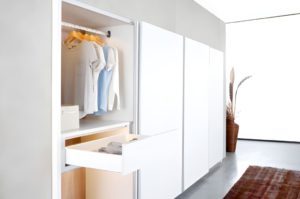Ever walked into your garage and wondered how it became a storage unit instead of, you know, a place for your car? Yeah me too. Last month I helped my neighbor clear out twenty years of “might need this someday” items from his basement. The relief on his face when we finally saw the floor again? Priceless.
Here’s the thing nobody talks about – clutter isn’t just annoying. It’s expensive. Really expensive. And I’m not just talking about the money you spent buying all that stuff. When my neighbor finally decided to tackle his basement, we filled three skip bins with Brindabella Waste Canberra. But the real cost? He’d been paying for a storage unit for five years because his house was too full. Do the math on that one.
The True Price Tag of Too Much Stuff
Let me break this down for you. When researchers at UCLA studied American families, they found something wild. 75% of garages couldn’t fit cars anymore. Not because the garages shrunk. Because we keep buying stuff we don’t need and shoving it wherever it fits.
But here’s where it gets interesting. All that clutter? It’s literally stressing you out. Cornell found that women with cluttered homes have higher cortisol levels. That’s the stress hormone. So your stuff isn’t just taking up space – it’s messing with your health.
And then there’s the time cost. The average American spends 2.5 days per year looking for lost items. Two and a half days! That’s a long weekend you could’ve spent doing literally anything else.
Why We Hold Onto Things (Even When We Shouldn’t)
Look I get it. That bread maker seemed like a great idea in 2015. And those ski boots? Well what if you suddenly decide to take up skiing again? We tell ourselves stories about why we need to keep things.
My favorite excuse is “but it was expensive.” Here’s the brutal truth – the money’s already gone. Keeping that elliptical machine as a clothes hanger doesn’t bring the money back. It just reminds you of a bad purchase every single day.
Then there’s the guilt factor. Gifts from relatives. Kids’ artwork from preschool (they’re in college now). Wedding presents from your first marriage. We keep things because throwing them away feels like throwing away memories or relationships.
But memories aren’t in objects. They’re in your head and your heart. That ugly vase from Aunt Martha? She won’t know if it’s gone. Promise.
The Liberation of Less
When I finally convinced my friend Sarah to declutter her home office, something amazing happened. She started working better. Making more money. Feeling less anxious. Turns out when you can actually see your desk, you’re more productive. Who knew?
The benefits go way beyond productivity though. People who declutter report:
- Better sleep (no more staring at piles of stuff)
- Easier cleaning (fewer things to dust around)
- More creativity (clear space = clear mind)
- Better relationships (no more arguing about mess)
And here’s the kicker – they save money. When you know what you have and where it is, you stop buying duplicates. You stop impulse shopping to fill some void. You start valuing experiences over things.
How to Actually Do This Without Losing Your Mind
Alright so you’re convinced. But where do you start when it looks like a tornado hit your house?
Start small. Really small. One drawer. One shelf. One corner of one room. The momentum builds faster than you think.
Here’s my system:
- Pick a small area
- Take everything out
- Only put back what you’ve used in the last year
- Be ruthless (but not stupid – keep your tax documents)
For the bigger jobs, don’t be a hero. Get help. Whether that’s bribing friends with pizza or hiring professionals, sometimes you need backup. And definitely arrange for proper disposal ahead of time. Nothing kills decluttering momentum like a garage full of bags with nowhere to go.
The Environmental Angle Nobody Mentions
Here’s something that might surprise you. Decluttering done right is actually good for the environment. How? Because when you have less stuff, you buy less stuff. And that means less manufacturing, less shipping, less packaging ending up in landfills.
Plus when you work with responsible waste management companies, a lot of your unwanted items can be recycled or donated instead of trashed. Old electronics, furniture that’s still decent, even some construction materials – they don’t all have to end up in a landfill.
Making It Stick
The hard part isn’t the initial declutter. It’s keeping it that way. Trust me, I’ve watched people declutter beautifully and then six months later it looks like they never started.
The secret? Change your buying habits. Before you buy anything ask yourself:
- Where will this live in my house?
- What will I get rid of to make room?
- Will I still want this in a year?
And here’s my favorite trick – the one in one out rule. Buy a new shirt? Donate an old one. New kitchen gadget? Something else has to go. It keeps the equilibrium.
Your Next Move
Look you don’t have to become a minimalist monk. That’s not what this is about. It’s about having a home that works for you instead of against you. Where you can find things. Where you can relax. Where you’re not constantly managing stuff.
Start this weekend. Pick one area. Just one. Clear it out. See how it feels. I’m betting you’ll be surprised at the relief, the clarity, the space to breathe.
Because at the end of the day, your home should be your sanctuary. Not your storage unit. And definitely not your source of stress. You deserve better than that. We all do.
The stuff will always be there trying to creep back in. But now you know the real cost. And more importantly, you know the freedom that comes from letting it go.





Be First to Comment